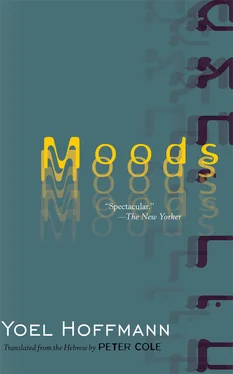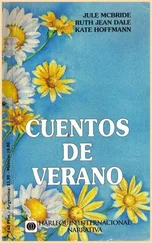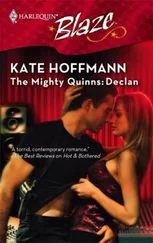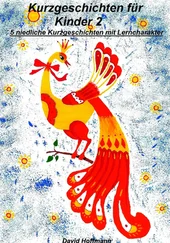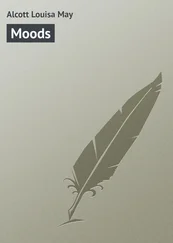At midnight the last of the jackals falls silent. The wild boars return to the thickets, and the dogs go into their doghouses. Each one dreams. The jackal dreams. The boar dreams. The dogs dream, and the human beings dream as well. If the children’s books are to be believed, so do the moon and the mountain.
[118]
Around three o’clock in the morning all sorts of things come to mind. That we said something stupid. That we were spoken to coarsely. That people we’ve loved have died and people we love are far away. That we’re old now. That everything’s gradually slipping away.
In the night air we see loose women. Killing fields. Natural disasters. Jackals are howling outside again, and the dog is barking. Things that were — won’t return.
There’s shouting everywhere. Houses on fire. Thoughts are burning. There’s an air of depression, like a cold front, moving in from the west. We’re walking barefoot along bookshelves that serve no purpose, turned in as they are on themselves, and ponderous, like geological formations in a canyon’s walls. Whence cometh my help, we think. And take a Valium.
[119]
Someone said, “Get hold of yourself.” We’ve always wanted to get hold of ourselves, but to do this we’d need to extend our arms considerably, and how could we stand on the ground if we were in fact to get hold of ourselves (feet and all).
Imagine that we could cradle ourselves like that and move from place to place like large babies carrying themselves. We’d calm ourselves down like mothers do when they rock their babies in the air and sing them lullabies.
People would come with claims only against themselves and with the soles of their feet laid bare. Maybe they’d even be carrying themselves (getting hold of themselves) while they’re naked. So nothing would be concealed from them, and they’d see themselves completely, as a mother sees her baby while she’s changing a diaper.
True. We’d no longer be counted among the bipeds. Our legs might atrophy. Crows would undoubtedly gaze at us in amazement. Maybe we’d be defined in dictionaries as a kind of clumsy bird (lacking wings and feathers) that hovers heavily as it carries itself over the face of the earth. But we wouldn’t be wanting.
[120]
The sun sets in any event, even if you try hypnosis to get it to stop in the sky.
You can sit in Nahariya by the sea and see for yourself. Like we did once, when we met with the editor in chief at Café Kapulski.
The editor in chief didn’t know, of course, that we were trying to do this, and so we could focus on the hypnosis only when he turned to eat his tuna sandwich or took documents out of his briefcase. Maybe that’s why it wouldn’t work. That is, because we weren’t able to look at the sun the entire time as it was setting.
We’ve not yet revealed to a soul that we have hidden powers. We can, for example, break a thought in two and join an entirely new thought to one of the broken halves. Or we can move our hand.
You can go to Café Kapulski in Nahariya and try these things. You might have some luck, even with the sun.
[121]
Among our powers is the power to draw women toward us.
We’ve been endowed with this only to a moderate extent. At times a woman would walk toward us as though against her will, but usually this was a woman we weren’t interested in, like women whose names were Kinneret Lipshitz or Zahara. We were drawn to darker women, but more often than not they would march on, in a straight line (without, that is, veering off in our direction).
Nevertheless we lift up a prayer of thanksgiving for every woman who showed us kindness. One shouldn’t take these things lightly. That, and the green carpet that covers the hills during the rainy season. Or the migration of storks. Or the laundry lines with their white sheets on the rooftops. Or the train’s whistle or the boat’s horn as it comes into port. Or the perfume wafting in the theater lobby. All are blessings from God that exert an influence over us. And, especially, the gentle swish of dresses as women take them off.
[122]
We saw a beautiful woman during the Days of Awe. She glanced from behind the screen of the women’s section like a half moon revealed through a cloud.
With the blowing of the shofar our hearts were split in two and we fell in love with her. The prayer books and holy ark swirled in the space of the synagogue, like in a painting by Chagall. Every so often the screen was shifted and her face would appear then vanish. Lines from hymns were scattered, like Lego pieces, in the air.
Finally we couldn’t stand the screen any longer and went up to the edge of the women’s section and stared toward the swarm of kerchiefs that moved like a field of wheat in the wind. We didn’t see her, and nonetheless union with her was brought about, facing away, so that the world would go on. Otherwise, it would have returned to the darkness that preceded the chaos and void, and the voice.
In a certain sense one might say that at that moment we created the doors and frames through which people pass, and the vast range of possibilities within the kaleidoscope we call life.
[123]
Yesterday we came home and wanted to die. But then we remembered the laundry marks that are put on clothes (the letter nun for Nahman and for Shalom Nehemkin also a nun , though a shin would have been more appropriate) and our spirits revived.
There’s great vitality in laundry marks and in people who put them on each article of clothing. And later, at a large laundry, clothes are sorted by these marks and returned, clean and pressed, to their owners.
These are the things that require our attention in a novel. So that the clothes of the main character won’t get mixed up with those of the minor ones. Especially in a serious novel. Imagine what would happen if, in the middle of the action (when critical things were taking place), the main character was running around with a shirt three sizes too small for him. No one would take the book seriously.
Or picture a novel in which a man walks around in a woman’s clothes and a woman is wearing the clothes of a man. On second thought, such a thing is entirely plausible (and even called for) in a novel where all the main characters are transvestites. But these sorts of novels are quite rare, and as a rule it’s wise not to mix up the clothes.
[124]
Today is Christmas. We’re thinking about virgin births. Unlike that Portuguese writer, Saramago, we believe in the sanctity of that moment. There wasn’t an infant in the world, and suddenly there was.
And we too are the product of a virgin birth. We were born twice. First when a woman of flesh and blood delivered us in the ordinary manner. Later, like everyone, we were wiped off the face of the earth with the people who were sent to the ovens. And if we’re alive, we are — like some sad kind of miracle — among the babies now in the ground, or far above in the place where the smoke from the chimneys ascended. Beyond history.
[125]
The counting did in fact begin, as the Christians have it, with the birth of the infant Jesus. But it concluded with the birth of Adolf. We were given just 1,889 years of life.
Now we’re in the age of ash. Beyond time. As though in a game that has come to an end. There’s no more movement on the field. Just kicks toward the goal. Everything only seems to be. A thin wash of color covers it all, and beneath that — blackness.
Only giraffes remain. Mountains. Wisps of clouds. Celestial bodies. Woods. Bodies of water and shells of men. Europe, apparently. Hallucinations. A real sun rises over nothing.
[126]
We know that we need to say something amusing now. Some sort of joke. Or an anecdote. Something about a great love.
Читать дальше
